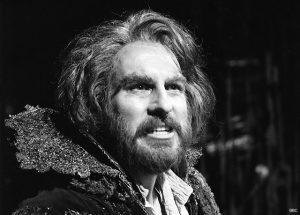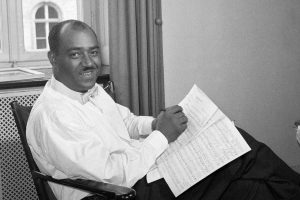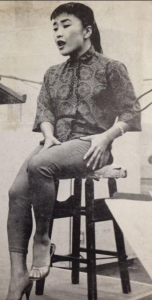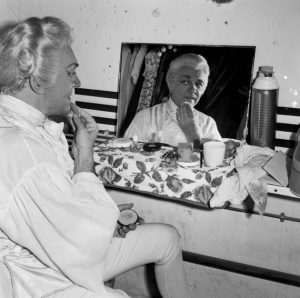Podcast: Play in new window | Download (Duration: 1:41:06 — 115.0MB) | Embed
Subscribe: Spotify | TuneIn | RSS | More
There are very few singers that mean more to me than does Elisabeth Söderström. I was first made aware of her at the tender age of ten, when I became obsessed with Pelléas et Mélisande after hearing the (at the time) brand new recording of the opera conducted by Pierre Boulez which featured Söderström and George Shirley in the title roles. Further explorations yielded further delights: the complete Rachmaninov songs with Vladimir Ashkenazy, the Janáček heroines under Charles Mackerras. I began grabbing every recording of hers that I could get, and every time I encountered her unique voice, frail yet passionate, I fell further and further under her spell. And then I saw her onstage, both in recital and as the Marschallin on the Met Tour and I became an even more passionate devotee. When I was recently reminded that May 7 was her birthday, I determined that it was time to revisit her legacy and artistry. Because she was so quintessentially Swedish, I have chosen a program featuring Söderström singing primarily in Swedish, including a healthy sampling of music by Swedish composers (Blomdahl, Nordheim, Lindberg, Alfvén, Larsson, Nystroem, and Rangström). And because she sang so many of her operatic roles in Swedish translation, we also get to hear her as Charpentier’s Louise and Puccini’s Cio-Cio-San. Vocal guest stars are fellow great Swedish singers Erik Sædén and Hugo Hasslo. Also expect some delicious and delightful surprises, as this most spontaneous and inspired of singers always had something unexpected up her sleeve!
Countermelody is a podcast devoted to the glory and the power of the human voice raised in song. Singer and vocal aficionado Daniel Gundlach explores great singers of the past and present focusing in particular on those who are less well-remembered today than they should be. Daniel’s lifetime in music as a professional countertenor, pianist, vocal coach, voice teacher, and journalist yields an exciting array of anecdotes, impressions, and “inside stories.” At Countermelody’s core is the celebration of great singers of all stripes, their instruments, and the connection they make to the words they sing. By clicking on the following link (https://linktr.ee/CountermelodyPodcast) you can find the dedicated Countermelody website which contains additional content including artist photos and episode setlists. The link will also take you to Countermelody’s Patreon page, where you can pledge your monthly or yearly support at whatever level you can afford.







